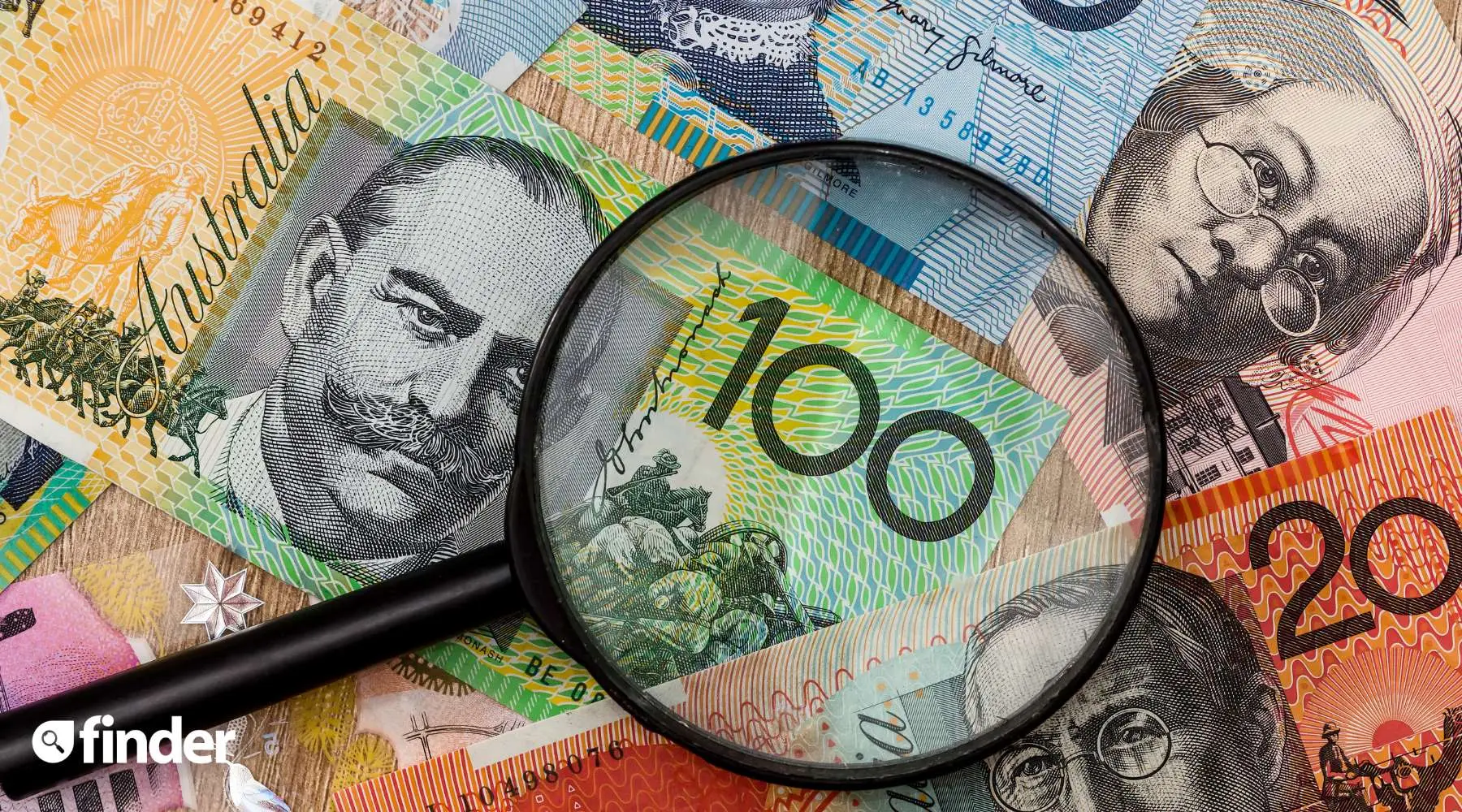Will Australia ever be a cashless society?

Cash usage continues to decline, but what happens next?
I often get asked to appear on the radio to talk about whether we're facing a cashless future.
It's a very real phenomenon. Here are some pertinent stats:
- Just 14% of all transactions are made with cash, and just 8% by value, according to the RBA.
- 43% of Australians never carry any cash with them, Finder research shows.
- The volume of cash withdrawals dropped by 51% between 2018 and 2023, Commonwealth Bank research found.
But presenting the situatio as a stark cash versus cashless approach isn't really helpful.
Yesterday, I was lucky enough to chat about this on ABC Victoria's Conversation Hour with Kirsten Diprose.
Here are some edited highlights from our discussion.
ANGUS: This topic comes up all the time and people are passionate about it on both sides. The people who like cash don't want to see disappear, and the people who like the convenience of tap and go don't want to see that disappear.
KIRSTEN: There are really strong feelings on both sides of this debate, but it's not a footy team, is it? It's integral to how we live our lives and not just convenience and freedom, but the concept of feeling secure about our money.
ANGUS: Absolutely. I think sometimes the framing gets me because if I we ask it will we literally become cashless that looks very unlikely. I think we're always going to have situations where cash is important.
But we know now that the vast majority of transactions don't involve cash. According to the RBA, only 13% of all transactions in Australia actually involve cash; everything else is already cashless. So we're not in a situation where there's a tipping point coming; the tipping point happened a while ago. Cash is now an option but it's no longer the most common option. It's a long way for being the most common option.
KIRSTEN: The Australian Banking Association is projecting us to be just 4% using cash by 2030. So, how close are we to being cashless?
ANGUS: I think we'll get to the 4%, but I think I feel like 4% percent is about where it will stop. Because there are always going to be these scenarios where cash may be more appropriate. Yeah, maybe it's swap meet. Maybe there's no power. Maybe you're trying to make that gold coin payment for your tuck shop stuff - though by 2030 you'll need a note to pay for anything at the tuck shop!
So I think we are we're going to see that move towards it and we're going to see individual businesses that might say 'we're not taking payments in cash anymore'. But I think cash disappearing entirely is not something I see happening in my lifetime, I think it will be there, but it's going to become the minority player, not the majority player that it was for many of us for most of our life.
KIRSTEN: I spoke at the start of the show about this concept of a functionally cashless society being, when only 10 percent of transactions happen with cash. Is that what you define as being cashless as well?
ANGUS: I'm really resisting using this term 'cashless' because I think it gets people freaking about the extreme versions of it. I think we're going to be a cash-dominant society, where most transactions happen electronically. So I'd say less cashless and more electronic-first, and I think honestly the data tells us that we're there. Not all, but most, and we're already there, that's already happened.
KIRSTEN: We have some audience questions. Ben from Sale wanted to know: does a business have to charge a surcharge when a card is being used to pay?
ANGUS: No, it's up to the business whether or not it chooses to charge a surcharge. But If it chooses to, if it makes the choice to charge a surcharge, the surcharge can only reflect the cost of providing that service. So if that business is being charged a 1 % percent fee, it can charge a 1% surcharge. But it can't charge a 3^ surcharge, and you can't charge a flat fee. It's not allowed the profit from passing on the surcharge. It's not a requirement to charge but it's illegal to charge an excessive charge.
KIRSTEN: That's a good one to clear up. What about physical money? If we go towards a cashless Society, will the value of the physical money go up? Will it become a collector's item?
ANGUS: There's definitely potential for that happen. Already, when new physical money comes out you know those first issues are extremely valuable. The first coins have come out with King Charles on them and they're all snapped up by collectors. There was more demand for them as collector items than as actual pieces of currency.
There is a chance that notes that get issued in the next 20 years may go up in value and that you could get because there'll be fewer of them to start with because we are printing less money than we used to, because we don't need it.
So, yes, for people who are into coin collecting and note collecting, there are going to be interesting times ahead because the supply of what's available is going to be more limited than what it was in the past.
KIRSTEN: On text, Charlotte is asking: 'I don't know why anyone is so passionately for cashless, unless they're a banker earning money with every surcharge. Why not keep the option open and only use cards if you want to?' And there are a lot of messages saying 'saying, look, it's really only the banks who want this and they're pushing this or they're the ones who benefit from this. Do the banks really get to benefit from this?
ANGUS: It is beneficial for banks and for businesses, because cash has a handling cost. We forget this, we often think of it as just being there, but cash doesn't appear by magic in every business and every bank there's a distribution cost to that.
So it is undoubtedly beneficial to banks to not have to deal with so much cashBut the fact that so many people have willingly shifted suggests that convenient to a lot of people as well. We know from Finder research that 43% of people never carry cash anymore.
You talked before about those half million people who said we're happy to give up plastic cards. So there's no doubt, there's something in it for the banks, but I think there is something in it for a lot of people who just see cash as an inconvenience, they don't need in their lives. And there are always going to be people on that side of the fence as well.
KIRSTEN: Another text asks: are businesses allowed to refuse cash payments. The short answer is yes, can you explain why Angus?
ANGUS: Yes, because businesses are entitled to set their terms of payment up front and as long as they're clear about it, it's then up to you whether or not you deal with them. People often believe that the notion of legal tender means you must accept cash. And that's not what it means. It just means that money is the accepted medium that we are measuring how we share value between each other.
But there is no requirement for a business to have to accept cash. And we have seen that pattern, that some businesses have gone to not doing that. Obviously, if you want to get the widest range of customers, you want to offer the widest range of payment forms, but I think business has other considerations. It's that decision of saying, well, if I need to get cash inand that means I send an employee to the bank to do that stuff. That's also a cost.
KIRSTEN: And if you rock up with a bucket full of five cent pieces, a business owner, can refuse that too, can't they?
ANGUS: Yes, this is the one law around cash acceptance . You basically don't have to accept more than five dollars worth of any of the smaller coins. A business that accepts cash probably will take those coins anyway, but they are not obliged to. That's the one circumstances in which a business that accepts cash can refuse to accept.
So if you've been hanging to your five cent pieces for a long time, don't take them to a business, take them to your bank, or find an ATM you can pour them into and deal with them that way
KIRSTEN: Briefly, what's harder: printing money and then having to securely transfer money and keep it in bank vaults, or backing up a fully digital, cashless society system.
ANGUS: It's harder to distribute money through trucks is the honest answer. None of these systems are free. Distributing cash cash is difficult and I think this is the thing that's going to make it interesting when we hit the point when we've got 5% cash usage and we go 'Wow, this really is the most expensive form of transaction now'. And that's why the debate will not die. Even if we accept that as a society, we think there's a role for cash, and I think we do, there's also a cost to cash, and I think maybe we need to think more about that than we have in the past
You can listen to the whole cashless discussion online (my bit starts around the 41 minute mark).
Get more helpful money tips to help you save.
Sources
Ask a question

While there are costs for using cash, aren’t there also very significant costs for cashless, such as electricity, the immense costs of computers and associated equipment? What are the costs of power failures? And how much will it cost for all the surveillance equipment to control all the people, even the few that are allowed to remain alive? Will robots really be able to make everything that the elites demand?